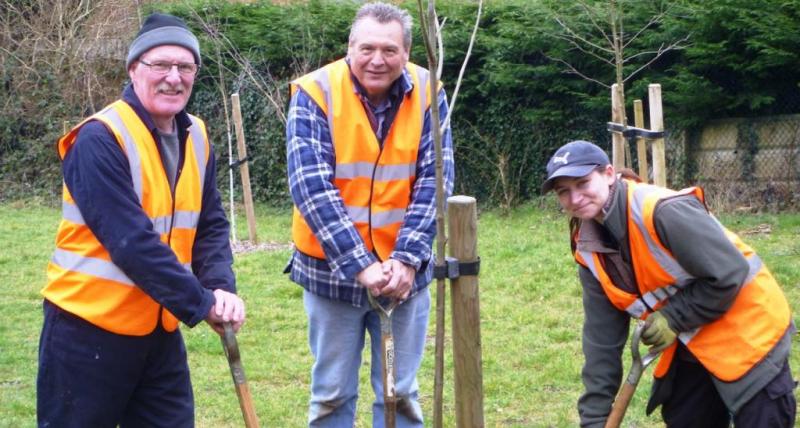
Volunteers have helped plant 17 trees in Wallsend Parks – including a species which marks the centenary of the death of a prominent North East botanist.
The new trees, which include species from all over the world such as the famous Giant Redwood, were planted as part of a regular review of species in the park.
North Tyneside Council aims to gradually improve the variety of trees at the popular attraction over the next five to 10 years.
Other species which have been planted include Persian Ironwood, native to Northern Iran, Swamp Cypress, native to America, and Dawn Redwoods, which are native to China.
However, the new collection also features a species of Lime tree, planted by the parks team and volunteers, called Tilia oliveri or Chinese Silver Lime, which is named after prominent North East botanist Daniel Oliver.
Oliver was born in Newcastle in 1830 and by his mid-twenties was making botanical excursions to Ireland and the Aran Isles.
From 1858 he worked as an assistant at Kew Gardens, London, and shortly after was appointed professor of botany at University College London.
He went on to become the keeper of the Kew herbarium and library in 1864, a position which he held until retirement in 1890.
He died in 1916 and therefore the planting of these trees in Wallsend Parks commemorates 100 years since his death.
The trees will form part of a free printed ‘Tree-trail’ map, due to be launched this summer and made available from the Verandah Cafe.
This will compliment the already popular free sculpture trail ‘The Tale of the Ginkgo Trolls’ - a self led story trail exploring carved trees and logs around the park.
The new trees will also increase the botanical interest in the park for visiting primary and secondary schools as well as providing a resource for site research and identification for horticulture students, including the council’s park apprentices.
Phil Scott, Head of Environment, Housing and Leisure, North Tyneside Council, said: “Historically, the majority of large-scale planting in the borough’s parks favoured affordable, robust trees such as Sycamore, which establish quickly but provide little botanical interest and have limited bio-diversity value as a habitat in the woodland.
“Our management plan for Wallsend Parks now aims to introduce a balance of interesting tree species from around the world to sit alongside more native species which are important for wildlife.
“We are grateful for the fantastic efforts of the volunteers who helped us plant these new trees, which we hope will prove to be of interest to visitors and students alike.”
Gordon Jamieson, one of the volunteers who helped plant the new trees, added: “The park holds many memories for me growing up in the area. It’s nice to be able to give something back to the community by volunteering.”
